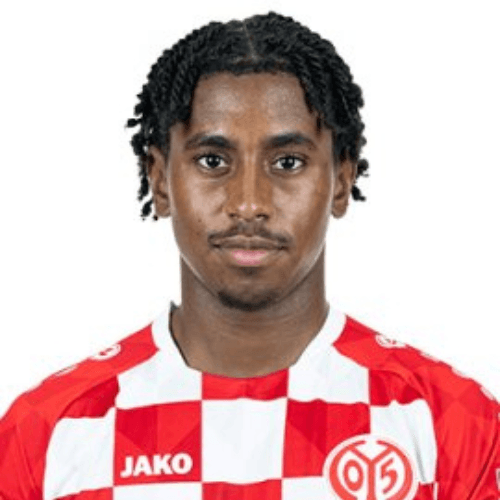
Football in Luxembourg
In this article, we delve into the rich history of the Luxembourg national football team, exploring its journey, achievements, and challenges. Additionally, we shine a spotlight on the best football clubs in Luxembourg, unraveling their stories and impact on the country's football landscape. Join us in uncovering the nuances of football in Luxembourg, where passion and dedication are reshaping the narrative of a footballing nation.
Nestled within its small borders and limited by a modest population, Luxembourg faces unique challenges on the global football stage. Historically, the Luxembourg national football team has not claimed international powerhouse status, consistently finding itself at the lower end of various rankings. Despite this, recent years have witnessed a modest upswing in Luxembourgish football, with a growing determination among the nation's best players to rewrite their sporting narrative.
The Luxembourg national football team
The Luxembourg national football team, formed in 1908 and affiliated with the International Football Federation (FIFA) since 1910, has undergone a noteworthy transformation in recent years. Currently led by Luc Holtz since 2010, the team initially played its home matches at the Josy-Barthel Stadium in Luxembourg City, later relocating to the new Luxembourg Football Stadium in September 2021.
A little more than a decade ago, Luxembourg languished at the bottom echelons of both European and global football standings, ranking even below San Marino in the UEFA rankings and hitting rock bottom in the FIFA rankings in 2006, securing the 186th position out of 208 nations.

Despite these early struggles, the Luxembourg national team has experienced a marked improvement. Presently, it holds significant positions in footbal rankings, showcasing a positive trajectory over the past few years.
Several factors contributed to this upward trajectory, including the emergence of a talented generation of national players, substantial investments by clubs like Dudelange, and the advent of the UEFA Nations League. The team's progression in the Nations League is particularly notable, starting in Division D in 2018 at the 44th position out of 55 and steadily climbing to Division C, where it currently stands at the 37th position in 2022.
This evolution marks a promising era for Luxembourg's football, with a convergence of talent, strategic investments, and competitive platforms propelling the national team toward a more prominent and competitive standing on both the European and global football stage.
Best football clubs in Luxembourg
The premier division of Luxembourg football, Ligue BGL, serves as the battleground for the country's most esteemed football talents. Comprising 16 teams, an impressive number for this compact nation, the competition has been dominated for the past two decades by Dudelange, although some teams manage to present formidable challenges.
Within Ligue BGL, two clubs have secured the lion's share of titles: Jeunesse d'Esch, boasting 28 championships, and F91 Dudelange, with 16 titles, all achieved since the 2000s. Following closely are clubs like Fola Esch with 8 titles and Avenir Beggen with 6 titles.
In the following section, we will take a closer look at the realm of Luxembourg football, examining some of the standout clubs that contribute to the vibrancy and competitiveness of the sport in this small yet football-passionate nation.
Jeunesse Esch

The Association Sportive la Jeunesse d'Esch, based in Esch-Sur-Alzette in the southwest of Luxembourg, holds a storied history in football. Established in 1907 as Jeunesse la Frontière d'Esch, a nod to its proximity to the French border, the club adopted its current name in 1918, dropping "La Frontière" but retaining its identity until World War II. Post-liberation, the club reclaimed its original name.
Additionally, Jeunesse d'Esch has made its mark in UEFA Europa League qualification rounds, solidifying its position as a powerhouse in Luxembourg football history.
F91 Dudelange

F91 Dudelange stands as one of Luxembourg's premier football clubs, rooted in Dudelange, the city from which it derives its name. Established three decades ago, the club emerged from the amalgamation of three entities: Alliance Dudelange, US Dudelange, and Stade Dudelange.
Additionally, the club made Luxembourg football history by becoming the first team from the nation to reach the group stage of any UEFA competition, accomplishing this feat in the 2018/2019 season when they qualified for Group F of the UEFA Europa League.
Fola Esch

Established in 1906 by a British professor, Club Sportif Fola Esch holds the distinction of being the oldest football club in Luxembourg. Originally a multi-sport club in Esch-sur-Alzette, Fola embraced various sports, including tennis, which is reflected in its name, FOotball, and LAwn tennis. Over the years, the club evolved, with handball breaking away in 1933 and athletics in 1950.
While the club has claimed the Luxembourg Football Cup thrice, the last victory dates back to 1955. Fola Esch's enduring legacy and continued success underscore its significance in Luxembourg's football history.
Avenir Beggen

Football Club Avenir Beggen, based in the Beggen quarter of Luxembourg City, situated in the northern part of the capital, has experienced a storied journey through Luxembourg football.
Consistently featuring in the División Nacional from 1965-66, Avenir Beggen faced a temporary setback with relegation in the 2005-06 season. Swiftly regaining momentum, the club secured a return to the top flight after finishing second in the second division. Despite a subsequent relegation in the 2008/2009 season, Avenir Beggen has once again ascended to the premier division.
However, Avenir Beggen is a team of contrasts, holding the record as the least successful team among the 530 participants in the UEFA Champions League, with a tally of 1 goal scored and 56 conceded in 12 matches, an intriguing facet in the club's dynamic history.
FC Differdange 03

Football Club Differdange 03, hailing from the southwestern city of Differdange in Luxembourg, emerged in 2003 through the merger of two local clubs: Red Boys Differdange and AS Differdange. Despite its recent formation, the club inherits a rich history, particularly from Red Boys Differdange, established in 1907, a mere year after Luxembourg's first football club, Fola Esch.
Red Boys Differdange boasted an illustrious past, clinching 6 national titles and 16 Luxembourg Football Cups, making it a record-holding club at the time of the merger.
However, despite its glory days, the team found itself languishing in the Luxembourg Division of Honour (the second national tier). AS Differdange, the other merging team, operated in the third division.
Commencing in the Division of Honour in its inaugural season, FC Differdange 03 swiftly ascended to the topflight in Luxembourg football after the 2005-2006 season when the Luxembourg Football Federation expanded the league from 14 to 16 clubs. Currently positioned favorably in the premier division, the club achieved noteworthy feats, finishing as the runner-up in the Luxembourg National Championship in 2009 and again in 2022. FC Differdange 03's journey exemplifies a triumphant blend of historical legacy and contemporary success in Luxembourg football.
Racing Football Club Union Luxembourg

Racing Football Club Union Luxembourg, based in Luxembourg City, stands as a prominent football club in Luxembourg with a rich history and a distinguished youth development program.
Founded in 2005, the club's inception resulted from the amalgamation of the city's major football entities: CA Spora Luxembourg, Union Luxembourg, and CS Alliance 01. Notably, these three clubs had their roots in prior mergers, CA Spora Luxembourg in 1923 from RC Luxembourg and SC Luxembourg, Union Luxembourg in 1925 from US Hollerich Bonnevoie and JS Verlorenkost, and CS Alliance 01 in 2001 from FC Aris Bonnevoie and CS Hollerich.
The combined legacy of these precursor clubs amounted to an impressive 28 Luxembourg National Championship titles. Despite its formation in 2005, Racing Football Club Union Luxembourg has yet to secure a national championship but achieved cup success in 2018, showcasing the club's resilience and commitment to excellence in Luxembourg football.
Important coming-up football matches in 2024
In the upcoming year, Luxembourg's pivotal football engagements revolve around the Euro 2024 qualification matches. Positioned in Group J, Luxembourg already competed in the initial qualification phase against group rivals, narrowly missing the cut for direct qualification.
| Date | Matches | ||
| Thursday, March 23, 2023 | Slovakia | 0-0 | Luxembourg |
| Sunday, March 26, 2023 | Luxembourg | 0-6 | Portugal |
| Saturday, June 17, 2023 | Luxembourg | 2-0 | Liechtenstein |
| Tuesday, June 20, 2023 | Bosnia | 0-2 | Luxembourg |
| Friday, September 08, 2023 | Iceland | 3-1 | Luxembourg |
| Monday, September 11, 2023 | Portugal | 9-0 | Luxembourg |
| Friday, October 13, 2023 | Iceland | 1-1 | Luxembourg |
| Monday, October 16, 2023 | Luxembourg | 0-1 | Slovakia |
| Thursday, November 16, 2023 | Luxembourg | 4-1 | Bosnia |
| Sunday, November 19, 2023 | Liechtenstein | 0-1 | Luxembourg |
Despite the setback, Luxembourg retains a chance through the Play-offs, featuring twelve teams, with three securing last-minute tickets to the tournament's final stage.
| Path | Team 1 | Team 2 |
| A | Poland | Estonia |
| A | Wales | Finland / Ukraine / Iceland |
| B | Israel | Ukraine / Iceland |
| B | Text | Finland / Ukraine |
| C | Georgia | Luxembourg |
| C | Greece | Kazakhstan |
| Path | Team 1 | Team 2 |
| A | Poland / Estonia | Wales / Finland / Ukraine / Iceland |
| B | Israel / Ukraine / Iceland | Bosnia and Herzegovina / Finland / Ukraine |
| C | Georgia / Luxembourg | Greece / Kazakhstan |
Luxembourg competes in Route C, aiming to win these matches for a coveted spot in Euro 2024. The semifinal clash against Georgia on March 26, 2024, in Georgia, could lead to a decisive face-off with the winner of Greece vs. Kazakhstan at Luxembourg Stadium at 20:45. In the event of a loss in Georgia, Luxembourg hosts the loser of Greece vs. Kazakhstan at Luxembourg Stadium on the same date.

The Euro 2024 itself will be hosted in Germany from June 14 to July 14, featuring 24 teams. As the host nation, Germany is automatically qualified and will kick off the tournament in Munich on June 14, 2024. The final showdown is scheduled at Berlin's Olympiastadion on July 14, 2024, concluding the exciting football spectacle. Luxembourg aims to secure its place through the playoffs, offering fans the prospect of seeing their team shine on the Euro 2024 stage.
Prominent Players
Players can be categorized in various ways, by titles won, matches played, goals scored, or even by their prowess as playmakers. Here, we spotlight prominent players based on their individual achievements.



These players exemplify excellence in their respective roles, contributing significantly to Luxembourg's football prowess.
| Player | Clubs | Goals |
| Benjamin Bresch | Marisca Mersch (LU) | 14 |
| Arthur Abreu | Titus Pétange (LU) | 11 |
| Edvin Muratovic | Racing FC Union Luxembourg (LU) | 9 |
| Gerson Rodrigues | Sivasspor (TR), Al Wehda (SA) | 9 |
| Dejvid Sinani | Dudelange (LU), Swirf Hesperange (LU) | 6 |
| Stefan Rocha | UN Käerjeng (LU) | 6 |
| Leandro Barreiro | Mayence (DE) | 6 |
| Edis Agovic | Dudelange (LU) | 6 |
| Florik Shala | Swirf Hesperange (LU), UNA Strassen (LU) | 5 |
| Joel Rodrigues | Marisca Mersch (LU) | 5 |
Frequently Asked Questions (FAQ)
How successful is the Luxembourg national football team on the international stage
Which are the top football clubs in Luxembourg
How has the football landscape in Luxembourg evolved in recent years
What are the key challenges faced by football in Luxembourg
Source: fr.wikipedia.org, fr.wikipedia.org, www.flf.lu, soccerinteraction.com, soccerinteraction.com, www.footballdatabase.eu, www.leballonrond.fr, fr.wikipedia.org, fr.wikipedia.org, fr.wikipedia.org, fr.wikipedia.org, fr.wikipedia.org, es.wikipedia.org, en.wikipedia.org, fr.wikipedia.org, fr.wikipedia.org, fr.wikipedia.org, es.uefa.com, www.flf.lu, www.footmercato.net
We took photos from these sources: Photo by Denniz Futalan for Pexels, Wikipedia, Jeunesse Esch website, F91 Diddeleng Facebook Page, Fola Esch Facebook Page, Avenir Beggen Facebook Page, FC Differdange 03 Facebook Page, Racing Football Club Union Luxembourg Facebook Page, stadedeluxembourg.lu, fcmarisca.lu, footballdatabase.eu, footballdatabase.eu